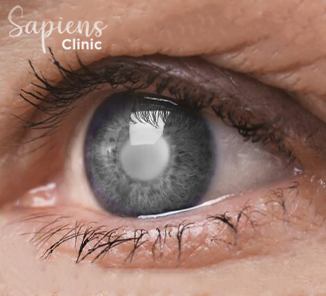False Eye Fitting in Malleshwaram – Rebuilding Confidence at Sapiens Clinic
Have you lost an eye due to trauma or cancer and feel conscious about your appearance?
Is your eye socket looking sunken, red, or asymmetrical after eye removal?
Do you experience discomfort in a non-seeing, painful eye?
Has your doctor advised you to remove an eye due to a tumor or advanced disease?
At Sapiens Clinic, Malleshwaram, we understand the emotional and functional impact of eye loss. Our advanced ocular prosthesis fitting (false eye fitting) offers patients a realistic, comfortable, and confidence-restoring solution.
What Is False Eye Fitting Surgery?
False eye fitting involves placing a customized artificial eye (ocular prosthesis) after surgical removal of the damaged or diseased natural eye. This may be required after surgeries like :
- Enucleation – complete removal of the eyeball (usually due to intraocular tumors like retinoblastoma or choroidal melanoma)
- Evisceration – removal of internal eye contents, leaving the outer shell intact (not suitable for cancer cases)
- Exenteration – removal of all orbital contents, sometimes including eyelids, typically in aggressive cancers
An orbital implant is placed during surgery to fill the volume, and once the area heals, an ocularist fits a custom-made prosthetic eye that mimics the natural eye in color, size, and movement.
How Is the Prosthetic Eye Fitted?
After the primary surgery (enucleation/evisceration), the following steps are taken :
- Orbital Implant Placement: Done at the time of surgery to maintain socket volume and support future eye movement.
- Healing Period: Typically 6-8 weeks, during which a conformer is placed to preserve socket shape.
- Custom Eye Fabrication: An ocularist takes an impression of your socket and designs a hand-painted acrylic prosthesis matching the color and details of your natural eye.
- Fitting & Adjustment: The artificial eye is polished, positioned and adjusted for movement and comfort.
Advanced techniques like myoconjunctival enucleation help preserve muscle connections, offering better mobility of the prosthetic eye.
Recovery After Prosthetic Eye Surgery
Recovery is usually smooth and well-tolerated. Mild discomfort, swelling, and light sensitivity are common immediately after surgery. Patients are guided on how to :
- Clean the socket daily to prevent infection
- Use prescribed antibiotic or lubricating eye drops
- Avoid rapid eye movements during early recovery
- Handle and clean the prosthetic eye safely once fitted
The final prosthesis provides excellent cosmetic results and can move almost like the natural eye.
Cost of False Eye Fitting in Malleshwaram
The cost varies depending on the type of surgery, implant used, and customization of the prosthesis. Our team will provide a clear treatment plan after evaluation, covering :
- Eye removal surgery (if needed)
- Implant type
- Ocularist consultation and custom prosthesis fabrication
- Post-operative care and follow-ups
At Sapiens Clinic, our goal is to restore your confidence and appearance with expert care and precision. We work closely with skilled ocularists and surgeons to ensure your prosthetic eye feels natural, looks life like and supports your emotional well-being.
Schedule a consultation at Sapiens Clinic, Malleshwaram, to explore your options for false eye fitting today.
FAQs
1. How long after surgery can the prosthetic eye be fitted?
Usually after 6-8 weeks, once the socket has fully healed.
2. Will the artificial eye look and move naturally?
Yes, a custom-made prosthesis is designed to closely match your natural eye and will move to a good extent.
3. Can I sleep with my artificial eye in place?
Yes, most patients wear it throughout the day and night unless instructed otherwise.
4. How often should I clean or replace the prosthetic eye?
Regular cleaning is advised, and the eye may need polishing annually. Replacement may be required every 3-5 years.
5. Is this a painful procedure?
No. With proper anesthesia and post-op care, most patients only experience mild discomfort.

Leave a Reply